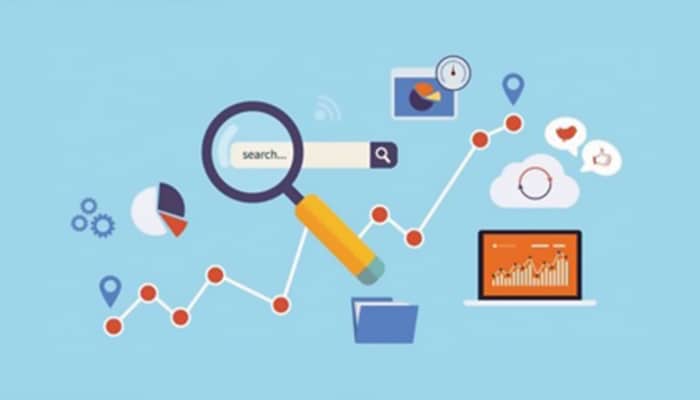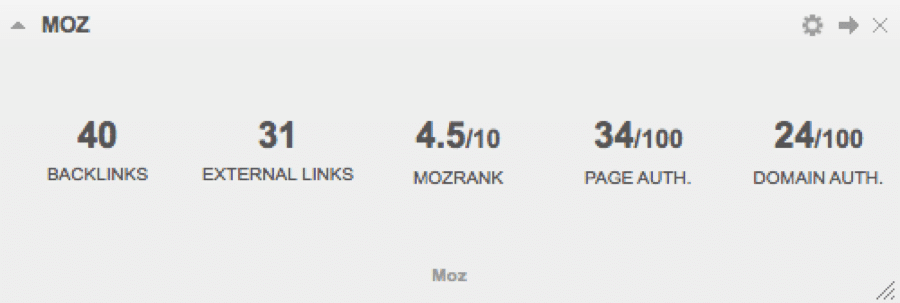
Search engine optimization (SEO) is the process of creating and improving content in order to increase ranking and searchability for specific terms and keywords. The idea is that you want to be viewed as an authority by search engines like Google, Yahoo, and Bing in your industry. They determine this by algorithms that index your content, knowledge, and external impact to determine how likely your website is to answer a question that someone is searching for. The more confident that the search engine is that you have the answer that is being looked for, the higher your website will rank for that search phrase. While this is a very simplistic view of search engine optimization, it’s really what it is all about. It’s all about the fight to get to page one of search results (where approximately 92% of clicks go).
Search engine optimization is an industry with a lot of very technical aspects and acronyms and it can get very difficult to understand and keep up with. So, we’re making it a little easier for you. We are breaking down the major Moz analytics and SEO insights that you’re likely exposed to and don’t quite understand. We’ll also look at how you can improve your scores! Let’s dive in!
Moz
Moz is a tool used to measure, monitor, and evaluate the onsite and off-site search engine optimization aspects of your website. It is widely regarded as the industry leader and the go to tool for businesses of all sizes when it comes to search engine optimization. Moz measures items such as backlinks, external links, MozRank, page authority, and domain authority. Let’s breakdown what each item means and how you can improve it (and monitor your progress in your Cyfe dashboard!).

Backlinks – Quite simply, a backlink is one website mentioning another website and linking to it. It is not merely referencing the website or it’s web address. It has to be a clickable link using an href attribute within the code. It is the difference between www.moz.com and Moz. Even though the first example displays a URL, search engines do not register this as a backlink. They are usually visually seen with an underline and a different color to the text. [THEEDESIGN]
While it’s widely debated, backlinks are still considered an important factor in search engine rankings, but they are not easy to get, at least not good backlinks. While there are services out there that you can purchase backlinks (even thousands at a time), Google is no dummy. While you may quickly jump to the first page of search engine results, you will likely drop off just as quickly once Google evaluates the link quality.
In order to increase your quality backlinks (links with high domain authority (which will be described shortly), relevant to your content, and high trust) we recommend sharing your content everywhere you can, working with a trusted white hat SEO agency (an agency that does their work manually and focuses on optimization strategies to focus on a human audience instead of trying to trick search engines or sounding like a robot), and even doing some extra leg work to offer to guest blog on relevant high DA (domain authority) websites. Backlinking is not easy and will take time, but if it’s done right, it can be a big boost in your search engine results and keyword rankings!
External links – External links are references and links to outside resources within your content. An external link is any link pointing to a different domain than the domain that it is on. So, if your business was Footlocker and you were promoting a new product by Nike and in the description you mentioned and linked to the product’s page on nike.com, that would be considered an external link for Footlocker and a backlink for Nike. Just like a backlink, the link has to be using an href attribute within the code (ex. Nike.com vs. Nike).
While external links may (or may not) directly improve your website’s search engine rankings, it does help you in two less direct ways:
- Linking to a high domain authority site improves the trust of your content.
- It can help you establish a good relationship with that higher domain authority site and encourage a backlink from them later on, which would be very valuable.
In general, the more backlinks and external links your site has, the better off you’ll be (assuming they are high trust and high domain authority links).
MozRank – MozRank quantifies link popularity and is Moz’s version of Google’s classic PageRank algorithm. Pages earn MozRank based on the other pages on the web that link to them and the MozRank of those linking pages. The higher the MozRank of the linking pages, the higher the MozRank of the page receiving those links. In this way, it reflects a type of raw link equity for any given webpage on the Internet.
MozRank is scored on a scale of 0 to 10 and is scored down to a tenth of a point. The higher your MozRank score, the better. According to Moz, The “average” web page actually has a MozRank that’s only a tiny fraction (~0.05). Thus, if you have a MozRank of 1 or 2, you’re way more “important” (from a raw link equity standpoint) than the average. That said, “average” on the web can be a bit of a misnomer — the vast majority of pages you’ll find ranking in Google or on webpages you visit in a normal surfing session are likely to be MozRank 2, 3, 4 or higher.
You can increase your MozRank by linking to other pages internally (i.e. linking from one page on your site to another) or by getting backlinks from websites that have a higher MozRank than your website does. Backlinks are more impactful in general than internal links, but both are important to increasing your MozRank.
Page Authority (PA) – Page authority is a score developed by Moz that predicts how well a specific page will rank on search engine result pages (SERP). Each page is scored between one and 100. Higher scores correlate to a higher likelihood of ranking.
The best way to improve your page authority is to improve your MozRank for each page. Every page on your website will have its own page authority and thus each page should be focused on for page authority. Backlinks and internal links are very important to improving your page authority.
Domain Authority (DA) – Domain Authority is a score developed by Moz that predicts how well a website will rank on search engine result pages (SERP). Each domain (website) is scored between one and 100. Higher scores correlate to a higher likelihood that a specific website ranking. Domain authority is calculated using linking root domains, total number of links, MozRank, amongst other metrics to produce a single score per website.
A page can (and likely will) have a different page authority score than the website’s domain authority. Websites as a whole are scored for domain authority whereas each individual page is scored for page authority.
Your domain authority is best improved by focusing on your website’s overall search engine optimization including your backlinks, internal links, keyword strategy, and content.
SEO
Like we mentioned in the beginning of this post, search engine optimization is the process of creating and improving content in order to increase ranking and searchability for specific terms and keywords. While that is a great high level definition, it’s actually a very technical process (and includes a little bit of guess work). Moz describes SEO as the practice of increasing the quantity and quality of traffic to your website through organic search engine results. Let’s take a look at a few terms that you will want to keep an eye on and what they mean:
SERPs – SERPs are search engine results pages. They are where results from each search are displayed. SERPs typically contain two types of content – organic and paid results. Each search engine has a paid advertising platform and paid results are prioritized over organic traffic by showing in the top, side, and/or bottom of the page. Organic results are the ten results that show up between the ads and are a result of the SEO practices used by that website and page. Search engine optimization focuses solely on organic rankings.
Keyword Ranking – Your keyword ranking is the average position that your website was listed in organic search results for a specific keyword or phrase. It is widely accepted that the top ten results are the most important because those are the results that will be featured on the first page of search results. It’s important to identify your target keywords and monitor your progress with the rankings for those keywords.
While SEO may not be something that we’re all educated in or equipped to handle on our own, we all should be monitoring the progress of our search engine optimization and how our website is viewed by search engines. Not monitoring these items yet? Get started with a FREE Cyfe dashboard! No credit card needed! Start now!



